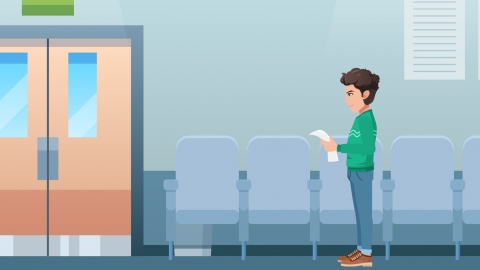Which department should a man visit for a small intestine hernia?
Men with small intestine hernias can seek medical care in departments such as general surgery, hernia and abdominal wall surgery, emergency medicine, urology, or general practice. Different departments have varying focuses in the diagnosis and treatment of hernias, so patients should choose based on their specific symptoms. If a hernia becomes incarcerated, causing severe pain, vomiting, or other acute symptoms, immediate medical attention is recommended.
1. General Surgery: This is the foundational department for diagnosing and treating small intestine hernias. It provides services including hernia diagnosis, conservative treatment guidance, and routine surgical procedures. It is suitable for patients with stable symptoms and no urgent complications, meeting the clinical needs of most patients.
2. Hernia and Abdominal Wall Surgery: A specialized department focusing specifically on hernias and abdominal wall disorders. It offers more advanced surgical strategies for complex cases (e.g., recurrent or large hernias) and is ideal for patients with complicated conditions or those requiring precise, individualized treatment.

3. Emergency Medicine: Recommended for acute cases such as sudden hernia incarceration, irreducible hernia, severe abdominal pain, nausea, vomiting, or local redness and swelling. This department can rapidly manage emergencies to prevent serious complications like intestinal necrosis.
4. Urology: If the hernia is accompanied by urinary symptoms such as frequent urination, urgency, or difficulty urinating, or if the hernia is located near urinary organs and may affect them, patients may visit this department to evaluate possible concurrent conditions and receive coordinated care.
5. General Practice: Suitable for patients who have just discovered a hernia, have mild symptoms, or are uncertain about which specialty to visit. This department provides initial assessment, preliminary diagnosis, and timely referral to appropriate specialists, offering convenient primary care services.
In daily life, patients should avoid strenuous exercise and heavy physical labor to reduce increased intra-abdominal pressure; maintain regular bowel movements and avoid straining during constipation; stay warm to prevent coughing. If the hernia protrudes, it may be gently pushed back into place, but prolonged incarceration should be avoided.




